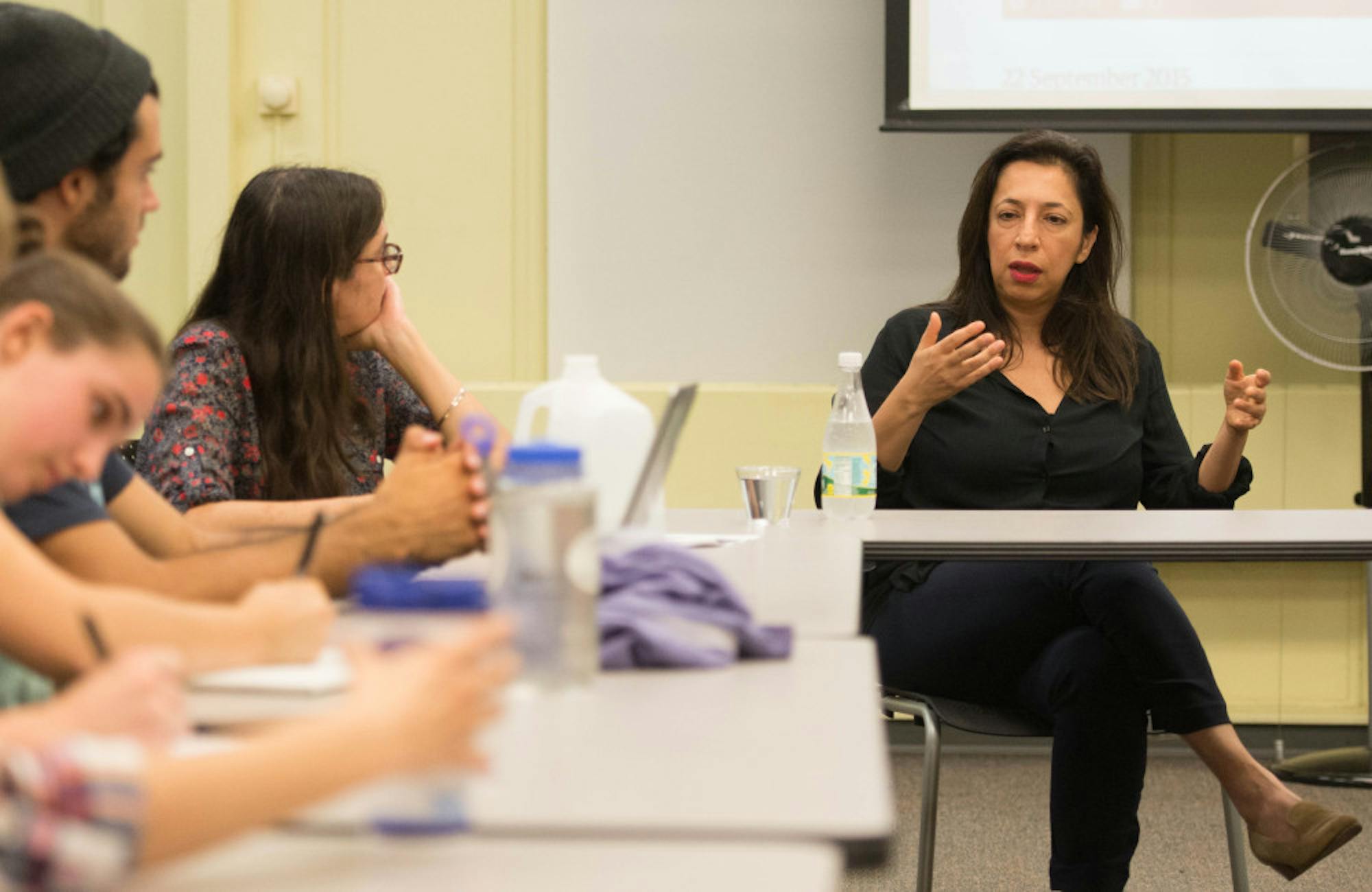Journalist Kelly Golnoush Niknejad spoke about her career and the creation of the Tehran Bureau, a Boston-founded independent news organization covering news on Iran and the Iranian diaspora, in the Rabb Room last night.
The talk, "Tehran Bureau: Beyond Crisis Reporting," was sponsored by Middle Eastern Studies, Film and Media Studies and the International Relations Program. It was organized by Amahl Bishara, the program director for Middle Eastern Studies, and moderated by Kamran Rastegar, the director of the Arabic Program.
Niknejad said she started the Tehran Bureau as a blog in 2008, and the site quickly gained traction as it caught the attention of different news outlets.
After the contentious Iranian elections in 2009, the Tehran Bureau became a go-to source for many national news organizations, including The New York Times and ABC News, according to Niknejad.
Niknejad explained that the Tehran Bureau collaborated with the Public Broadcasting Service’s series “Frontline” for a few years before officially partnering in 2014 with the British newspaper The Guardian, which has been hosting the organization since.
Niknejad spoke highly of her partnership with The Guardian.
“[The Guardian] is very open-minded, and there is a lot of room to do interesting things," she said.
Niknejad said news coverage of Iran had been dominated by inaccurate reporting up until the Tehran Bureau’s inception. As an Iranian herself, Niknejad said mainstream reporting did not ring true.
Instead, Niknejad found a network of Iranian reporters on the ground to do reporting for the Tehran Bureau.
"I wanted Iranians to cover Iran," she said.
Niknejad said the bureau's reporting even resonated with readers inside Iran.
After Niknejad's talk, Rastegar, a professor of Arabic literature and culture, opened the floor to student questions.
One student asked Niknejad how she stayed strong in the face of adversity. In response, Niknejad spoke about the Tehran Bureau's struggle with lack of funding, which posed a major problem when the organization was just beginning.
According to Niknejad, the bureau relied on Paypal donations from its readers to keep functioning until the organization became supported financially by "Frontline."
Niknejad said she would not allow the bureau's stories to pander to gain more attention and potentially more funding.
“I have not been able to bring myself to that,” she said. “I do not want to simplify for an American audience."
Niknejad added that she wants the Tehran Bureau to focus solely on the quality reporting that has helped the organization gain the attention it has so far.
Rastegar said the Tufts campus lacks complex dialogue on the topic of Iran.
She added that she wants there to be a conversation about the good, bad, ugly and everything in between.
With discussions about Iran pervading the news, Bishara, an anthropology professor, said there is no better time to have these discussions.
“It is a region that has had a very dynamic relationship with the United States, and it is a relationship that certainly needs to be more thoroughly understood in the United States,” Bishara said.
Niknejad agreed, adding that if there was one thing that students could take away from her talk, it would be how important journalism is, especially amid the U.S. election cycle.
“I wish people realized…and how important [journalism] is to a democratic society," she said.
Iranian journalist speaks about Tehran Bureau reporting

Kelly Golnoush Niknejad, founder of the Tehran Bureau, spoke about her career to an audience of students in the Rabb Room last night.





